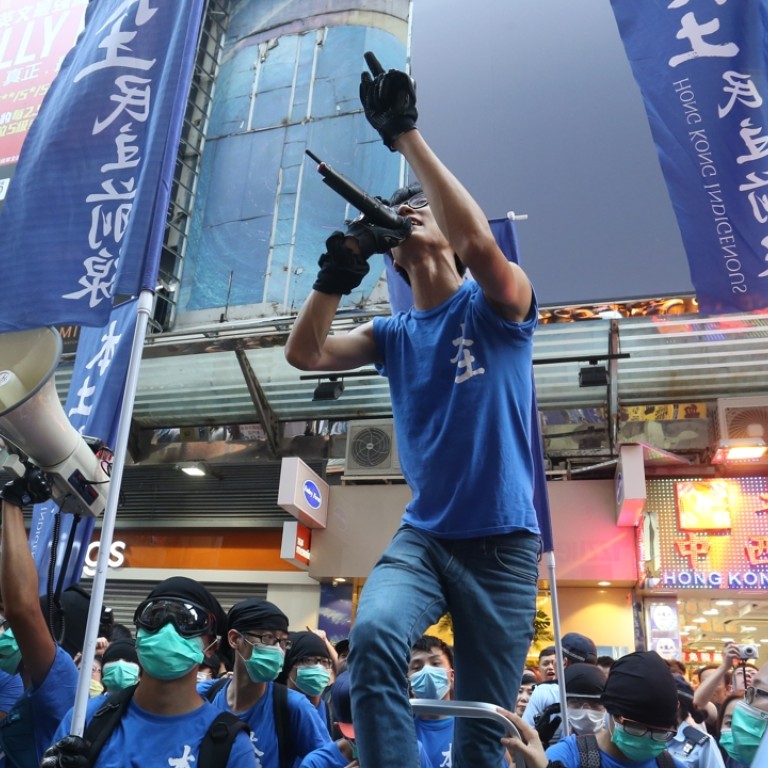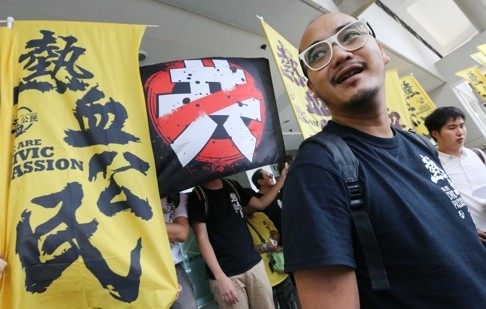
In divided Hong Kong, there is still hope for rational debate
Kelly Yang says the city must overcome the acrimony in the air and bring back the space for real dialogue between people with different – even opposing – views
Every Saturday, I lead heated debates with groups of Hong Kong students on issues ranging from whether Apple should unlock their iPhones for the FBI to the ramifications of North Korea’s alleged hydrogen bomb test. However, if I try to bring up the topic of localism in Hong Kong, my students’ eyes just glaze over.
What’s there to talk about, they say. Anyone who comes out against them is automatically branded as “anti-democracy” or “pro-Beijing” and who needs that? Best to keep your head down, wait, and hope that things will get better, my students say.
READ MORE: Riot reality: denouncing mob violence of Mong Kok doesn’t make me a pro-China shoeshiner
This makes me terribly sad, the fact that we can sit around and debate issues on any number of countries, each with messes equal to or bigger than our own, but when it comes to our home, increasingly, we cannot have a debate about Hong Kong in Hong Kong.
Not a screaming match, or a riot, but a proper, civilised debate in which we examine rationally and calmly exactly what “localism” is. What are their goals and interests? How are those different from the goals and interests of those in the “pro-establishment” camp, and is there perhaps any common ground between the two sides?
READ MORE: Localist movement seeking independence makes fashionable move to violence, but it’s a political dead end

The impression in many youngsters’ minds is that it is a waste of time to talk about Hong Kong politics, because you’re either preaching to the choir, or you’re talking to a wall
Not surprisingly, the impression in many youngsters’ minds these days is that it is a waste of time to talk about Hong Kong politics, because you’re either preaching to the choir, or you’re talking to a wall.
The fact that we’ve become so polarised as a society is a tragedy. But we should not and cannot take that as grounds to give up. We must still try to engage, to talk to one another, and hopefully come together.
Now, more than ever, we need politics to work. We need diplomacy and compromise. We need dialogue and debate. We need to sit at the table again, so as not to collide on the street.
And I firmly believe that despite everything, it is possible to sit at the table again and have an intelligent and balanced discussion on Hong Kong without descending into hysterics.

“I didn’t think that was possible,” one student said. “I didn’t think that was allowed!” another joked.
And therein lies our true failure. It isn’t that the Occupy Central movement failed or the push for universal suffrage failed; it’s that we’ve managed to create an environment so hostile to any form of dissent that our next generation now thinks it’s futile to voice an opinion different from the one presented.
The pro-establishment and localist camps are equally at fault for this, equally responsible for chipping away at any notion of a safe forum for sharing opposing thoughts.
READ MORE: Let’s cultivate a sense of respect and tolerance in the young people of Hong Kong
It is time to change this. It’s time turn the page and start a new chapter, one built on dialogue, respect and compromise. We’ve got to start talking to each other, not at each other.
And so I try, every Saturday, to get my students to engage in debating Hong Kong politics, even though some of them may think it is moot. It’s not moot. It is our future.
Kelly Yang teaches writing at the Kelly Yang Project, an after-school centre for writing and debate in Hong Kong. She is a graduate of UC Berkeley and Harvard Law School. www.kellyyang.edu.hk

